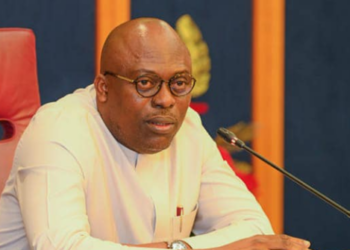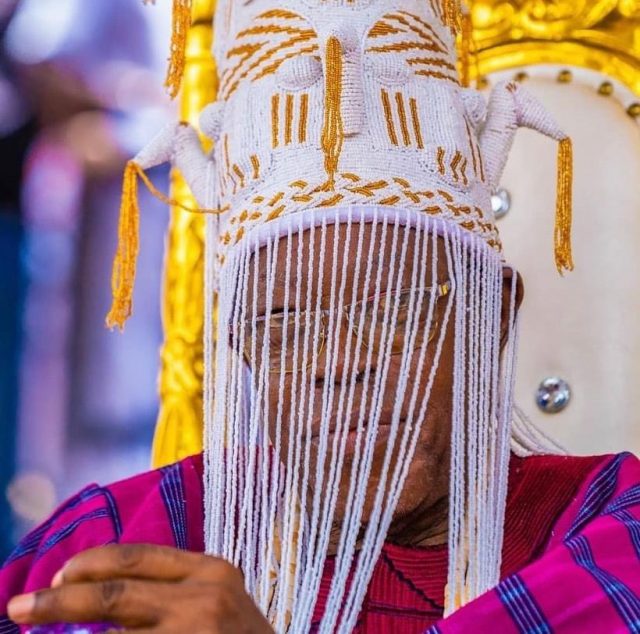By Professor Shuaibu Ibrahim
As the umbrella organisation for all political scientists in the country, we as members of the Nigerian Political Science Association (NPSA), consider ourselves among the critical stakeholders in the Nigerian project. Consequently, we feel obligated to make our position known on some of the active conversations going on in the polity.
We would like to preface this conference by pointing out that as political scientists we see the state as a social contract between the ruled (the masses) and the sovereign (the government). In this contract, the ruled voluntarily decided to give up some of their rights such as the right of self-help and also take up some obligations such as paying taxes in exchange for the government protecting their lives and property as well as providing the enabling environment for them and their children to thrive. This means in essence that both the citizens and the state should always be conscious of their obligations and entitlements in this social contract. In point of fact, when citizens criticize government’s actions it is often borne out of their belief that they are not getting a fair deal from the social contract or that such criticisms will help the state to better fulfil its part of the contract.
It is however troubling that the concept of state, especially its role in the society, has gone from disappointment to frustration with it displaying lack of capacity to discharge its duties to ever-conscious citizenry. Indeed, the recklessness of the state has led to the credible challenge to its major symbol of existence-power over coercive instruments. This has promoted the thinking that what needs to be done to accelerate the level of development is to interrogate the concept of anti-developmental state that seems to take more for the comfort of its own agents.
The fight against insurgency and corruption
We would like to sincerely commend the government for taking the fight to Boko Haram and manifestly degrading the group’s capacity to inflict terror on Nigerians, especially the people in the North-eastern part of the country. However, while we are supportive of the government’s fight against Boko Haram, we would also like it to pay attention to the underlying factors that have given rise to terrorist and insurgency groups. The fundamental grouses that mutate into terrorism and insurgencies need to be tackled at their roots. In this sense, we advise the government to prioritize dialogue and constructive engagements over military solutions when it engages insurgency and the separatist groups so that when Boko Haram is finally defeated in the North-east we will not have other ‘Boko Harams’ springing up in other parts of the country. As the ancient Chinese military strategist Sun Tzu would say, to “win a battle without shedding blood is the acme of victory.”
In the same vein, while we are very happy with the government’s resolve to fight corruption and impunity, we will also want it to realize that corruption is often a symptom of a more fundamental social malaise. It is simplistic to believe that corruption is solely due to moral lapses on the part of the corrupt. There is therefore the need to expand the current tools being used to fight the social malaise so that it can be fought root-and branch. Corruption is systemic and structural and any effective strategy must target not just the symptoms but even more importantly, the fundamental underlying causes of the social malaise.
Governance issues
We strongly urge the government to make the citizen, the average Joe or Musa or Emeka or Segun the focus of its activities rather than the elite. The growing misery and hardship in the land should be the primary concern of government at all levels. There is an urgent need for alleviation programmes that will cushion the effects of thecurrent hardship in the land. While we appreciate the fact that the government may be working on some programmes and is constantly urging the citizens to be patient, it should also be remindedas the British economist John Maynard Keynes would say that in the long-run, we are all dead. There is the need for our leaders to show more urgency in addressing the myriad of problems facing the nation.
Again, while the present government is certainly not the cause of the current recession and therefore of the hardship that the generality of the citizens faces, ordinary people also need to see that government officials are sharing in the sacrifices demanded of them. The current situation where leaders and public office holders continue to live in opulence, ostentatious and profligate lifestyles while the citizens wallow in penury is to give a different meaning to their expectations of material improvement from democracy. Sacrifice and exemplary leadership is precisely what is expected from public officials and the entire ruling elite during these hard times.
Public officials must also learn to engage more with the citizens through diverse means including frequent public speeches, media engagements and town hall meetings. Citizens have a right of first instance in information and indeed, revelations of incidences and developments that affect them.
It is crucial that citizens are well informed to eliminate the formation of rumours and gossips, and build confident and responsible citizens that take obligations to the state seriously. The current practice where information affecting the generality of Nigerians is first relayed outside the shores of this country or to foreign media organisations, cannot possibly build the required trust between the government and the governed.
Governments and state officials need to strive to build institutions and strengthen existing ones. Institutions are not just organisations and structures but also practices and procedures that have endured overtime such as routinizing law observance. Institutional weakness and the progressive degeneration and collapse of institutional frameworks underpin the impunity, lawlessness, political vagrancy, criminality, arbitrariness and indiscipline that pervade our society today. Governments must take seriously effective programmes of public service reforms, social engineering, ethical re-orientation and social mobilization that is backed by strong political will and exemplary leadership. While we recognizethe good intentions of the “Change Begins with Me’’ programme of the current government, we hasten to say that such a programme must be within the effective articulation of a framework of established and acceptable rules, values, ethics, behaviours, attitudes and conduct based on existing laws, constitutional provisions, customs, conventions, and social values around which citizens can be mobilized and inducted.
This consideration raises the issues of law-making and the cultivation of democratic principles at the local government council level. While we bemoan the virtual disappearance of the local councils due to the greed of the nation’s politicians which in effect, has robbed it of a good democratic nurturing ground, the National Assembly is yet to be the People’s Parliament where issues of public good fire the enthusiasm of members.
The incidence of perpetual confrontation with the executive, incubated in the choice of the leaderships for the Eighth Assembly that, in our view, ought to have been resolved, is still manifesting in their frosty relationship with each arm though populated mostly by members of the majority party disagreeing on everything having to do with good governance, is not healthy for our democratic practice.
And talking about building institutions and entrenching the mores of democratic practice, the government should consider bringing back such institutions as the former Centre for Democratic Studies to lead in the cultivation of democratic values that we have observed to be lacking among the country’s political leaders. It is only a democrat that can be at home operating a democratic project.
To be continued
The current situation where leaders and public office holders continue to live in opulence, ostentatious and profligate lifestyles while the citizens wallow in penury is to give a different meaning to their expectations of material improvement from democracy.



